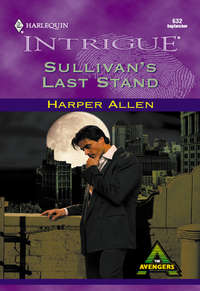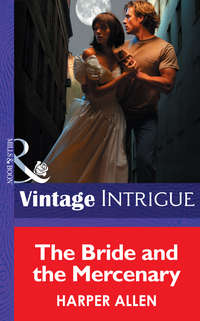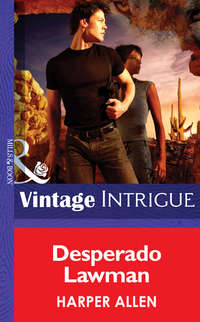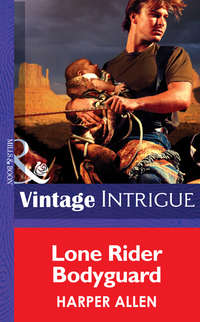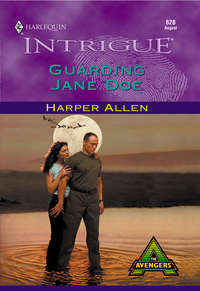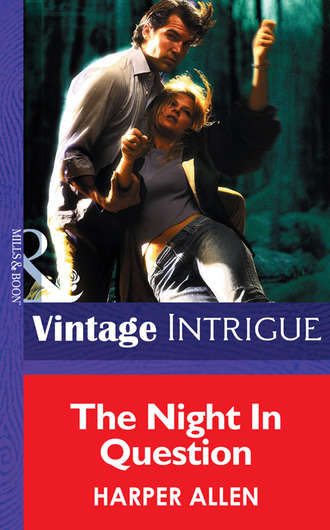
Полная версия
The Night In Question
And even as he’d continued to stare at her, his attitude impersonally professional, she’d seen a hard edge of color rise up under the tan of his cheekbones. He’d turned away immediately, and during the rest of the trial he’d been careful not to meet her eyes again.
But as she’d told him in the coffee shop, she’d known he’d been watching her. And, if she were honest with herself, the undercurrent she was feeling right now had been there from the start, on her side as well as his.
Except that wouldn’t make any difference to him, she thought with renewed despair. Max Ross might have his alternate realities just as she did, and his might even be more urgent than hers, but even if they included sweat-soaked sheets, total satiation, and every dark desire he’d ever had, he would never let them interfere with real life.
He was the law. She was an ex-convict. They weren’t on the same side and never would be, as far as he was concerned.
She gave it one last try, knowing it was futile.
“She’s my daughter, Max.” Her voice was husky. Her gaze on his, she tried desperately to make him see it her way. “I love her—surely you believe that? Even if everything else you thought about me was true, you must know that I love her too much to ever put her in danger. I’m her mother. She needs me.”
Just for a second she thought she saw him waver, and her heart leapt. Then he shook his head and the irrational hope died.
“If you love her you’ll give her up, Julia.” His voice was as low as hers had been, and it had lost its edge. “What kind of a life could you give her, even if you did find her? Her aunt has legal custody of her now, and that would make you a fugitive. You and Willa would be on the run, never putting down roots, never being able to give her a secure home. Is that what you want for her?”
He stared at her for a long moment. Then he let go of her arms, and his own dropped to his sides. His eyes darkened with something that could have been compassion. “I think you’ll do the right thing, Julia. I think you’ll let her go.”
And looking at him, she knew with sudden despair that he was right.
Chapter Three
She was soaked to the skin, but that didn’t matter. Hunching her shoulders against the downpour, Julia dimly realized that she was shivering, but that too was unimportant. She kept walking. Despite having no real destination in mind, somehow it seemed to her that she was heading in the right direction.
Damn Max Ross. The unspoken epithet was automatic, with no heat behind it. Damn him for showing up, damn him for making sure she hadn’t gotten the information she’d wanted and damn him for what he’d said.
But most of all, damn him for knowing her better than she’d known herself.
“…on the run, never putting down roots, never being able to give her a secure home…is that what you want for her?”
She’d wanted to scream at him that he was wrong, that it wouldn’t be that way. She’d wanted to tell him that no matter what difficulties faced her, she could give her daughter a stable life, a happy childhood. She’d wanted to tell him all the lies she’d been telling herself. She’d looked into his eyes and she hadn’t been able to say any of it, because she knew she didn’t believe it.
She’d been holding on to a dream that had died the day she’d been convicted, and Max was right—no one would ever believe she hadn’t done what she’d been accused of. Although no reporters had tracked her down, in the last few days a newspaper or two had covered her surprising release. The gist of the stories was that she’d made a mockery of the legal system.
No, there had never been any chance of getting Willa back again—not really. Max had known that from the start. Now she did too.
There was no reason to go on anymore.
The thought slipped into her mind as if it had been lurking there and waiting for the right opportunity to reveal itself. She was dead already, Julia thought distantly. Her body might go on for years, but it was only a shell. Everything that had been good, everything that had been real, everything that had been life to her had been held in a tiny pair of hands that had once clutched hers, had shone out of a pair of eyes that had gazed at her with absolute trust, had been encompassed by a love so perfect she could give nothing less in return.
Max was right. If she persisted in trying to get Willa back, ultimately she would tear her daughter apart. Did he understand, even a little, what he was forcing her to face?
He had to. He’d lost a child himself. And although the few details she’d garnered about that loss had been scant, the impact it had had on him was visible. Oh, he’d managed to continue functioning. He’d kept his job, and even performed it with a kind of automatic zealousness—her own case was proof of that. But there was an almost two-dimensional quality to him, as if when his workday was over, and he was finally alone with only himself for company, he simply…shut down. Maybe his ability to fade into the background wasn’t simply a tool of his trade, she thought with sudden insight. Was it possible for a man to turn into a ghost one day at a time?
Dead man walking. How much sheer strength of will did he have, that he could force himself to get up every morning and face an empty world, day after day?
More than she had. More than she cared to have, she thought numbly.
She stepped off the curb onto the street with barely a glance at the traffic lights. Her face was wet with rain, her hair plastered to her skull as if she’d just surfaced from a dive and suddenly she didn’t feel as if she could take another step. She squeezed her eyes tightly shut, wanting to blot out the present, wanting to bring back the past…and just for a moment, it worked.
She was holding Willa again, and feeling those tiny fingers delicately touching her ears.
“Why are you crying, Mommy?”
“Because pearls are for tears,” Julia said out loud, forcing a shaky smile to her lips and stopping stock-still in the middle of the road as the rain came down and the scars on her heart finally gave way and tore asunder. Her vision of Willa faded slowly away, and her voice sank to a raw whisper. “Everyone knows that, kitten-paws. Even I know that now.”
Her head bowed, her shoulders shaking with soundless sobs, she didn’t hear the hoarse voice calling out her name until it was too late. Blindly she looked up and saw the bus bearing down on her.
HE’D ALMOST BEEN too late. Max rubbed his jaw wearily and looked down at the still figure tucked under two comforters and a wool blanket in his bed. Her hair was still damp, and just below the hairline and above her closed eyes was a raw-looking graze. He’d given her that when he’d managed a fair imitation of the high-school football player he’d once been and had knocked her out of harm’s way with a flying tackle in the intersection. He realized he was gingerly rotating his shoulder, and he winced just as the doctor he’d called in looked up.
“There’s nothing physically wrong with her except for exhaustion and a bad chill. Now that she’s fallen asleep, I’d prefer not to wake her.” The older man lifted an eyebrow. “Even if I could get her admitted, hospital beds are in short supply. She’d be released tomorrow.”
“She refused to let me take her to one, anyway.” Max met his quizzical gaze and shook his head firmly. “And no, Doctor—there’s nothing here you have to worry about. I’ll let her get a decent night’s rest and then send her on her way in the morning. My interest in her is professional, not personal.”
One-handedly he fumbled his ID wallet out of his jacket pocket—his torn jacket pocket, he realized with little surprise—and displayed it briefly. The doctor grunted.
“I didn’t peg you as the type. But doesn’t she have anywhere else to stay?”
“She’s a transient.” Max’s reply was more curt than he’d meant it to be. “And I’m not sure she didn’t deliberately step out in front of that bus, Doctor. I’d given her some bad news earlier, and…” He paused uncomfortably. “Hell, who knows. Maybe I should have handled it differently.”
“I see. Well, if you’re still worried about her emotional state tomorrow, give me a call and I’ll arrange to have her put under observation for a few days, although I’m sure she won’t thank me for that.” There was shrewd assessment in the physician’s faded gaze as he got to his feet and walked to the door with Max. “She’s recently been a guest of the state, am I right?”
At Max’s quick glance he gave a wintry smile. “Please, Mr. Ross—she’s got a prison pallor, a wound from some kind of homemade weapon on her hand, and she’s obviously been living on sheer nerve for far too long. And you’re FBI, which raises a whole passel of awkward questions I don’t think I’ll ask.”
“Like I said, the relationship between us isn’t personal,” Max said evenly. “I was the one who put her behind bars. If I had my way, she’d still be there.”
They’d reached the front door, and the older man took the lightweight topcoat that Max was holding out to him and shrugged into it. He pursed his lips thoughtfully, patted his pockets for his keys and picked up his medical bag.
“Then it’s all the more interesting that you unhesitatingly risked your own life tonight to save hers, wouldn’t you say?” He tucked an umbrella under the arm that held his bag, and grasped Ross’s hand with the other. “Call me if you need to. But Mr. Ross, don’t forget that old Chinese saying—if you save someone’s life, you’re responsible for them forever.”
“My forebears were hardheaded Scots Presbyterians, Doctor.” Max didn’t smile as he opened the door and stepped aside. “That philosophy would have struck them as annoyingly fanciful.”
He waited until he saw the other man get into his car. Then he closed the door against the still-wet night and snapped off the porch light. A few steps along the short hall, he stopped to unlatch and slide open the pocket doors that led to the living room.
“Sorry, buddy. You can come in now.”
At his words, the big black dog that had been lying on the living room floor got heavily to his feet, his tail beating in acknowledgement. Stiffly the animal walked over to him and stopped, looking up inquiringly.
“Yeah, we’ve got a guest, Boomer.” Max dropped a hand to the dog’s head and idly scratched the folded ear, frowning. “I’m damned if I know what I was thinking, bringing her here, but we’ve got a guest. I’d better go check on her.”
The house was quiet as he passed through the kitchen, the only sounds the ticking of the clock on the wall and the irregular dripping of the faucet. He’d been meaning to fix that, he thought, pausing to tighten the loose tap. Maybe tomorrow he’d stop by the hardware store and get some washers after he sent Julia Tennant on her way.
Julia Tennant. Julia Tennant in his house—no, in his bed. What exactly had he been thinking, for God’s sake?
He’d told the good doctor his interest in her wasn’t personal. That might have been true at some point, but even two years ago he’d been in danger of crossing over the line between professional and personal. Now there was no doubt about it. His involvement with her in the last few days hadn’t been any part of his official duties.
In fact, if anyone found out just how involved he’d let himself become with Julia Tennant, Max told himself with calm certainty, he could end up losing his job.
He’d had a whack of vacation time due him. Other agents might plan a trip to Disneyland with the wife and kids, a wild and crazy jaunt to Vegas, a fishing trip with a few good buddies. He’d taken a week off three years ago, mainly because his director had insisted on it, and for the whole seven days he and Boomer had sat on the couch in front of the television, watching old movies and the afternoon soaps.
But when the word had gotten out that Julia Tennant’s conviction had been overturned and she was due to be released, he’d immediately asked for time off. He just hadn’t told anyone that he intended to spend his vacation making sure that she didn’t get within a hundred miles of her daughter and the woman who had once been her friend and sister-in-law.
So, yeah—this whole thing was emotional, Max admitted, staring out of his kitchen window into the night. But despite what Julia probably thought, the emotion driving him wasn’t hatred of her. She was a murderer, and he’d put plenty of them behind bars without giving them a second thought. On the Tennant case, however, he’d had to watch a little girl’s world be torn apart by the cold-blooded actions of her mother, and Willa Tennant’s innocence had broken through the wall of detachment he tried to keep between him and his work.
She hadn’t deserved to have her father killed, her life turned upside down, and everything familiar taken from her. He’d vowed her mother wasn’t going to do it to her a second time.
But this afternoon when he’d seen Julia standing in that intersection as if she had no desire to go on living, his blood had turned to ice. And a few seconds later, when he’d been cradling her suddenly fragile-seeming body beneath him on the pavement, he hadn’t been thinking of Julia Tennant as the enemy at all. Oblivious to the shaky anger of the bus driver who’d stopped a few feet past them and the surge of bystanders who’d gathered around, his attention had been fixed on her hair, dark with rain under his hand, on the vulnerable line of her throat, on the delicate fanning of her lashes against her cheeks. Then her eyes had opened.
They really were sapphire. For a moment they’d simply gazed at him as if waking up and finding him close to her wasn’t anything out of the ordinary. For that same crazy moment, he’d felt exactly the same way.
He was losing his goddamn mind, Max thought flatly, turning away from the sink and just barely concealing his disconcertion as he met those sapphire eyes once again. This time they were staring expressionlessly at him from a few feet away.
“If you’ll tell me how much I owe you for the doctor, I’ll be on my way.”
Her posture was ramrod straight and the shoulder-length blond hair was pulled tightly back from her face in a low ponytail. The graze on her temple had been cleaned by the doctor, but pinpricks of blood had welled up on it again.
She looked about as vulnerable as an electric fence. She was looking at him the way she always had—as if breathing the same damned air as he did was an ordeal. Max felt a muscle in his jaw twitch.
“Don’t worry about it.” His tone was deliberately dismissive, and with a flicker of satisfaction he saw her stiffen. “It was my decision to call him in. He gave you a fairly clean bill of health, by the way.”
“So barring any more encounters with the Boston transit system, I should live to a ripe old age. That’s good to hear.”
If he hadn’t been watching her closely he would have missed the total despair that flashed over her features. She bent her head, holding out her hand to Boomer as the dog sniffed her leg with canine formality. After a moment the heavy black tail gave a slow wag of acceptance.
“You stepped out in front of that bus deliberately, didn’t you?” He hadn’t intended to ask her the question, but as soon as the words were out he knew he needed to hear her answer. Julia’s head remained bowed.
“I don’t know, Max,” she said finally. “I honestly don’t know. Anyway, what happens with me isn’t your problem now, so don’t worry about it.” She gave Boomer one last pat and straightened, meeting his gaze directly. “I want to thank you for opening my eyes. You were right—Willa’s better off without me. I won’t be looking for her anymore.”
The smile that lifted her lips was brittle, as if she was one small muscle movement away from cracking. The least impulsive of men, with difficulty Max curbed the impulse to reach out to her. There was nothing he could say, he told himself harshly. He’d accomplished what he’d set out to do.
All that was left was to let her walk away. In silence he preceded her down the short hallway. He unlatched the front door and opened it, seeing with obscure relief that at least the rain had stopped.
The woman before him was a stone-cold killer, he reminded himself sharply. Forty days and forty nights of rain wouldn’t wash away the enormity of her crime.
“There’s a bus stop at the corner.” He didn’t meet her eyes. “There should be one coming by in a few minutes.”
“I’ll wait for it on the curb this time.” There was a touch of wryness in her tone. “Goodbye, Max.”
He saw the slight movement as she began to extend her hand to him. Before she could complete the action, he bent down to grasp Boomer’s collar. Her expression went very still.
“I’ll hold him while you leave,” he said shortly. “Sometimes the old boy forgets he’s not a pup anymore, and tries to make a dash for freedom.”
“Tell him it’s not worth it.” Julia’s words were clipped. She put her hand on the aluminum handle of the outer door and then paused, looking down at the two of them. “The answer to your question is yes, Max. Some part of me couldn’t bear the thought of going on without her. But even while I was lying there on the pavement a second later, I thanked God that I’d been prevented from doing it—because one day, maybe years from now or decades from now, my daughter might want to meet the mother she can’t remember. And even if that meeting only lasts long enough for her to satisfy her curiosity, it’ll be something to hold on to for the rest of my life.”
She turned back to the door, averting her face from him, but not before he saw the terrible bleakness that shadowed her features, the raw glaze of desolation in her eyes. Before he could speak she went on, her voice a whisper and her words no longer directed at him.
“In kindergarten already. Oh, precious—I wish I’d been there to hear about your first day.”
For a heartbeat she rested her forehead against the glass of the door, her eyes tightly closed and her teeth catching at her bottom lip. Then she raised her head and took a deep breath.
The next moment she’d pushed open the door and was gone, so quietly and quickly that by the time Max released his hold on Boomer’s collar he could just make out her slim figure swiftly walking down the sidewalk, her shoulders hunched against the night air, her hands jammed into the front pockets of her jeans.
It seemed that Julia Tennant was always slipping away from him, he thought with illogical frustration. She’d walked out on him at the coffee shop, she’d walked out on him this afternoon at Dobbs’s place and now she was gone for good—from his life, and her daughter’s.
And something about that just didn’t make sense.
Still standing at the door, he felt a chill spread through him. Julia had reached the corner, and the harsh street lighting gave her face and her hair an even paler hue. A block or two past her he could see the bus approaching.
She loved her child. The anguish he’d just heard in her voice had been wrenchingly real. She loved her daughter more than life itself, and that love was so total she was willing to give Willa up rather than bring any harm to her.
When he sat in on a trial, Max had a habit of focusing on one jury member out of the twelve, using his or her reactions as a gauge for the others. At Julia’s trial, he’d chosen a middle-aged woman as his barometer, and he’d been able to pinpoint the exact moment when Julia’s fate had been sealed. The prosecutor had brought out the fact that Willa had been supposed to be on the flight with her father the night he was killed. The little girl had actually boarded the private jet with him and the others, and only the fact that she had promptly gotten sick as soon as she’d been buckled into her seat had saved her life. Kenneth had apparently insisted on having her taken off the plane, rather than cope with her nausea.
Max had seen the middle-aged juror, probably a mother herself, turn appalled eyes on Julia as the implication had set in—that the woman they called The Porcelain Doll had been willing to kill not only her husband, but her child as well. The rest of the trial had been merely a formality.
The worn parquet flooring beneath his feet seemed suddenly insubstantial, as if it was about to buckle and splinter. Max clutched at the door frame as everything he’d thought was real was swept away.
“She didn’t do it,” he breathed, his frozen gaze fixed on the lonely figure standing under the streetlight. He saw the bus slow as it approached her, saw her waiting for it to stop so she could get on. “If she’d known there was a bomb in that package she would have gotten on that plane herself before she’d ever put Willa in danger. She didn’t do it, dammit!”
He pushed open the door, sprinting toward her and calling out her name in a hoarse shout as he saw her step up onto the platform of the waiting bus. He had to stop her, he thought desperately.
Because if Julia Tennant was an innocent woman, then someone else had gotten away with murder.
Chapter Four
“When did you last eat?” Before Julia could reply, Max pulled two flat packages from the freezer compartment of his refrigerator. “It looks like you’ve got a choice of He-Man Beef or He-Man Chicken. Both have some kind of apple crisp dessert and mashed potatoes.”
“I’m not hungry.” Julia saw that her hands were trembling slightly on the tabletop. She slipped them onto her lap out of sight. “How are you going to persuade the Agency to reopen the case? Would they do that on your say-so alone?”
“No.” Carefully he folded back a square of foil from the corner of each aluminum rectangle before sliding the dinners into the oven. He set a timer on the counter and took his place at the table across from her. “The Agency doesn’t operate on gut feelings and instinct. As far as they’re concerned, they got the right person, whether you were released from prison or not. Your file’s officially closed.”
“So you’d be looking into this on your own time?” She shook her head. “You don’t strike me as the type to operate on gut feelings either. What’s in this for you?”
The woman she’d once been would have approached the question more obliquely, would have softened its bluntness with a social padding of courtesy. As she’d told him in the coffee shop, Julia reflected, she seemed to have lost that knack. She flushed slightly as his gaze met hers.
“Does there have to be something in it for me?”
The black Labrador on the braided rug in front of the sink heaved himself to his feet with difficulty and padded over to his master’s side. Max let his hand drop absently to the dog’s head before he continued.
“I guess I can’t blame you for thinking that way.” He shrugged. “Let’s say I’m looking to clear my conscience, Julia. I screwed up and you paid for my mistake with two years of your life. I want to put things right again—not only for you, but for Willa.”
His tone was steady, but she thought she could hear a trace of self-recrimination in his words. She searched his face.
“You think she’s in danger, don’t you?” Under the table her fingers laced together tightly. “Dear God—you don’t think Barbara planted that bomb?”
He frowned. “It’s a possibility. But it doesn’t really make sense when you look at the lifestyle your sister-in-law’s adopted since the tragedy.”
“Her lifestyle?” Julia’s brows drew together in confusion. “Maybe she doesn’t take off to Europe at the drop of a hat or go to parties every night of the week, but she’s never thought anything of snapping up a Picasso lithograph without even asking the cost, because it happens to catch her eye. She keeps a floral designer on staff, for heaven’s sake, and the flower arrangements in her house are changed twice a week.”
“That’s my point. These days she’s more likely to cram a handful of cornflowers and daisies into a jelly jar, and instead of Picassos, she’s got Willa’s drawings stuck up on the refrigerator. She’s handed control of Tenn-Chem over to her mother, and, as far as I know, she refuses to have anything to do with any of the other Tennant businesses.”
He shook his head. “Like I said, it doesn’t fit. And she’d never let any harm come to Willa, Julia. She’s been a good mother to her.”


